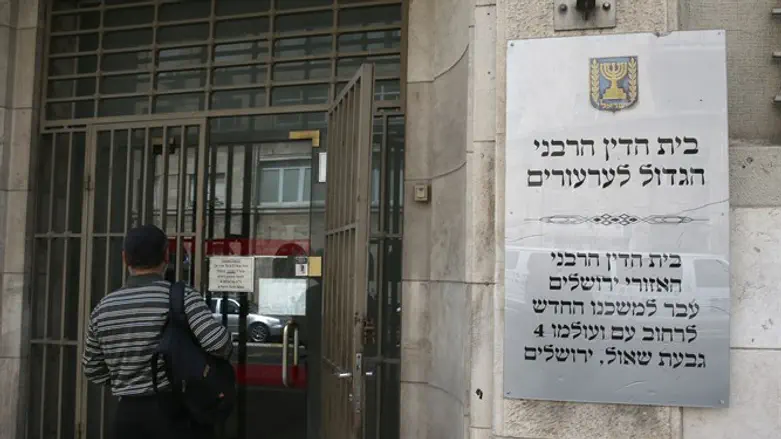
Couples entering a second marriage often draw up a prenuptial agreement between them prior to their marriage in which they define the division of their property in the event of a separation or death of one spouse. The ketubah (halakhic marriage certificate, ed.) however, stipulates an amount to be given to the woman if the marriage ends in divorce.
A recent case, centered around contradictory terms presented in a couple's prenuptial agreement, as compared to their marriage certificate. The couple in question turned to a rabbinical court to end marriage - which was the husband's second marriage.
The wife claimed the full amount of money promised to her under the ketubah (marriage document), but the husband claimed that the prenuptial agreement stipulated that "the sides will have no demands and claims beyond this agreement" and therefore he felt that the woman was not entitled to the money allotted to her in the ketubah.
The regional rabbinical court which adjudicated the case stated that the woman is obligated to accept the divorce from her husband and had no right to her ketubah claim.
The woman appealed to the Supreme Rabbinical Court headed by Chief Rabbi David Lau.
The rabbinical judges ruled that "despite the prenuptial agreement stipulating that in the case of a separation, no side will have any demands or claims, the court has decided to explain this clause as referring only to the personal property brought to the marriage by the couple and not to claims regarding the ketubah."
The judges then ruled that "in this case it appears to us that the woman has not lost the basic portion of her ketubah and therefore a compromise should be reached on it and the husband should pay her 50,000 NIS for her ketubah."